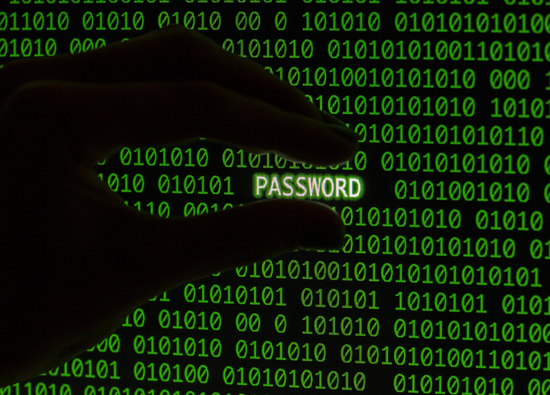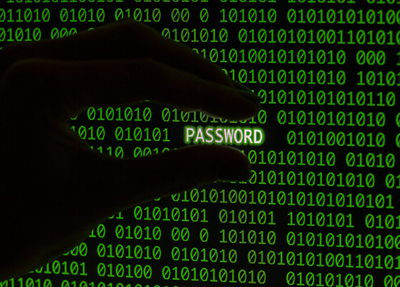06.2024 Life Guide
Cherish digital identity and protect personal privacy
Far Eastern New Century Corporation / Chen Fangyu


 In the highly digitized era, from online shopping to social media, from banking to medical records, personal privacy seems to be invisibly scrutinized at any time. A seemingly ordinary set of data can become a deadly weapon that deprives individuals of their privacy and property security. A recent new type of phishing case has once again sounded the alarm.
In the highly digitized era, from online shopping to social media, from banking to medical records, personal privacy seems to be invisibly scrutinized at any time. A seemingly ordinary set of data can become a deadly weapon that deprives individuals of their privacy and property security. A recent new type of phishing case has once again sounded the alarm.Apple users face crisis
The security team KrebsonSecurity has recently discovered a new scam in which hackers exploit vulnerabilities in Apple ID settings, send a large number of system notifications to users' iPhones or Apple Watches through the "reset password" function, and impersonate official customer service to steal accounts. Due to the fact that the notification message seems to come from Apple, many people mistakenly believe that action needs to be taken to protect their accounts. Just like many scams, once the victim provides a one-time Apple ID "SMS authentication code" to the hacker, they can not only reset their account password, lock all Apple devices under the victim's name, but also remotely clear all data on their iPhone, iPad, and Mac. Apple officially stated that unless customers contact customer service and request a response, the official customer service will never proactively make phone calls, and also reminded users not to share the verification code with anyone.
Privacy is also an intangible asset
In real life, people are cautious about keeping important documents such as ID cards and credit cards. However, in the digital world, risks such as hacker attacks, identity theft, phishing, and data leakage are everywhere, and personal information is constantly threatened. Many people's digital identities have become tools for criminals to profit. Once personal sensitive information is stolen, financial fraud and social engineering attacks will also follow. Why is personal information so valuable? Because they are the key to precise marketing for enterprises. Large corporations and advertisers use personal information to design advertisements and products, attempting to influence consumer decision-making. A seemingly ordinary set of numbers can become an important clue for analyzing customer preferences and predicting consumer behavior. Some companies even outsource and sell their data without user permission, seeking huge profits.
Personal data represents the user's identity in the digital world and is an intangible asset that needs to be properly protected. In addition to privacy and personal freedom, it can also affect property security. Once the information is stolen, it may lead to financial losses or legal disputes. Therefore, everyone has a responsibility to actively protect their personal information in order to enjoy privacy and security.
Practical skills to assist in protection
The following six methods will help protect your personal data and digital identity:
1. Strengthen password security: Set sufficient and complex passwords for online accounts, and regularly change them, or enable additional security measures such as double authentication.
2. Enhance prevention awareness: Identify and stay away from various forms of phishing, fraudulent information, and malicious software, and avoid clicking on suspicious links easily.
3. Be cautious in social sharing: Control the information individuals share on social media to avoid overexposure of details that may be exploited by others.
4. Regularly inspect accounts: closely monitor the activity records of online accounts such as banks and emails. If any abnormalities are found, take immediate action.
5. Encrypt and protect data: Encrypt important personal files and data, and regularly backup them to prevent theft or loss.
6. Support privacy regulations: Support regulations and policies that are conducive to protecting personal privacy, and urge enterprises to fulfill their responsibilities in protecting user data.
Building a digital firewall together
The threat of asset security is pervasive, and protecting individual assets is not something that can be achieved overnight. It depends on the cooperation of all sectors. In December 2023, the Legislative Yuan passed a third reading amendment to the Personal Data Protection Law to increase the punishment for the leakage of personal information by enterprises, in order to strengthen the responsibility of enterprises to protect their personal information; The government has also established a Personal Data Protection Committee to safeguard the privacy rights of the entire population. For enterprises, efforts should be made to improve the security of systems and networks, continuously monitor and fix various vulnerabilities, and at the same time strengthen the awareness of employee personal information protection. On April 8, 2024, the representative of the app industry, Whocall, also announced the launch of a new feature called "Personal Information Leakage Detection", which provides global users with free access to personal information leakage risks.
In the face of new forms of fraud, all sectors must use technological tools to avoid personal capital leakage. As the government gradually establishes new regulations for personal information protection, in the future, the public will have a greater right to demand that companies delete personal data and records, reducing the risk of privacy leakage. Let us work together to build an unbreakable firewall in the online world, safeguarding everyone's digital identity and personal privacy, and living a safe and secure life.
*Image source: freepik
#




















